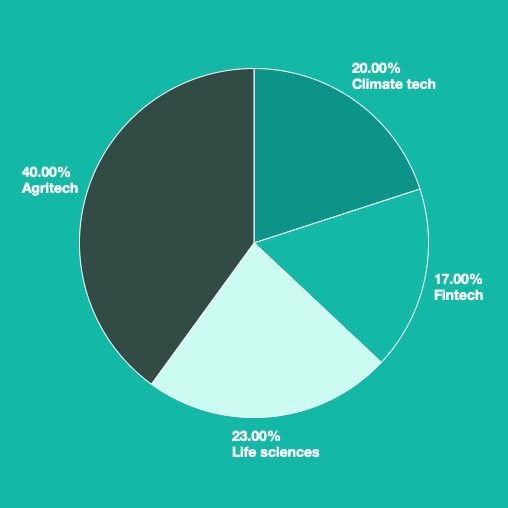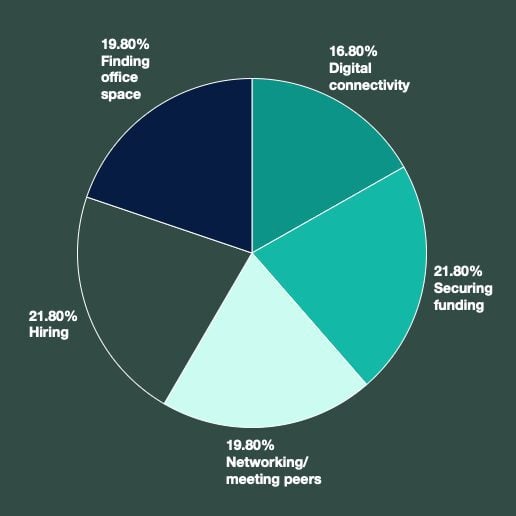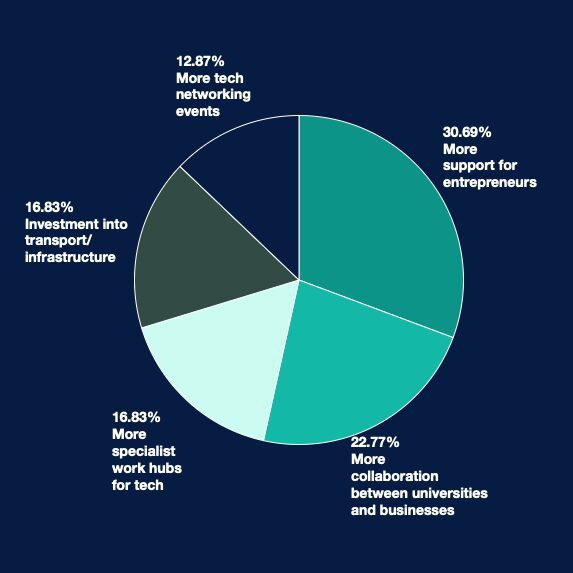Register for Free
Bookmark your favorite posts, get daily updates, and enjoy an ad-reduced experience.
Already have an account? Log in
Bookmark your favorite posts, get daily updates, and enjoy an ad-reduced experience.
Already have an account? Log in
“One litmus test of how well an ecosystem works is whether there are successful exits and whether the exited founders stay on and reinvest in the cluster. Think of Skyscanner in Edinburgh. The harsh reality is that without noteworthy exits a cluster won’t get the industry’s attention.
The last decade has seen a steady improvement in this flywheel in both Norwich and Suffolk For example, after the founders of Smart421 in Ipswich sold that business to KCOM they founded Inawisdom which grew rapidly in AI and Machine Learning and became a leading AWS partner before exiting to Cognizant in 2020. Foolproof’s exited founders have been driving forces and investors in Akcela, Norwich’s hottest incubator. When acquiring companies make acquisitions in the region they tend to grow the talent pool: FX Home was sold to Artlist who have grown a bigger team; Wiggly Amps exited to Boots and spawned new startups including Little Green Button.
It’s easy to get lost in the VC hype – the level of some of the biggest deals and trade sales in Norfolk and Suffolk are never disclosed – for example UEA spinout Spectral Edge exited to a mystery buyer. The reality today is that tech founders do not necessarily rush to follow an orthodox pathway to raise money from seed to Series A and beyond – the US style VC route. What matters is sustainable growth, the creation of high value jobs for the future and having meaningful tech businesses in Norfolk and Suffolk contributing year on year to the regional economy.
Nevertheless, the region would benefit from a wider range of sources of capital and the active involvement of more investors and funds. This is an area in which the British Business Bank has a key role to play and one which Tech East continues to advocate.
We predict an extremely exciting decade ahead with tech niches from insurtech, climate tech and bluetech (ports and logistics) progressing from the emerging to mature stage and the attraction of more both domestic and international investors to the region.”

UKTN surveyed Norfolk and Suffolk tech ecosystem stakeholders to explore their views on strengths, challenges, and opportunities.
For those in the Norfolk and Suffolk tech industry, Agritech was by far considered the region’s strongest sub-sector.
The region’s rich agricultural heritage, supported by institutions like the Earlham Institute, the John Innes Centre and the Sainsbury Laboratory, as well as the numerous major universities, has supported the development of a cutting-edge agritech sector.
The land in East Anglia is famously among the UK’s most fertile, so it’s natural in the digital age the region would emphasise the importance of this technology.
Respondents also highlighted life sciences, climate tech and fintech as regional strengths, with climate tech in particular being highlighted as a subsector anticipated to grow rapidly over the next five years.


James Allen
Programme Manager,
Connected Innovation
Norfolk and Suffolk are particularly exposed to the effects of climate change in the UK as the driest region, so the tech specialism around cleantech, agritech, space tech and aqua tech, combined with local world-leading research from our universities and research institutes, have a particularly strong role to play nationally and globally.
For those in Norfolk, the Norwich-based business incubator Akcela was by far the most named support organisation for tech startups in the region.
Akcela offers flexible workspaces for startups and provides expert support from experienced entrepreneurs. The Akcela incubator hosts startups for 18 to 24 months providing office space and mentoring in exchange for equity stakes. The incubator also supports its startups in securing pre-seed and seed funding.
New Anglia Growth Hub, which operates in both Norfolk and Suffolk, was also highlighted as a prominent support organisation for local tech alongside MENTA, Norwich Research Park and Innovation Labs.
Business challenges
According to the survey, securing funding is one of the biggest challenges for tech firms in Norfolk and Suffolk, a consistent challenge across much of the UK.
Hiring was also highlighted as a significant concern. The availability of digitally skilled workers is also something faced UK-wide, however, this issue is more prevalent in rural areas.
This has also created a challenge of networking and meeting peers, an essential element of growing a tech hub. Additionally, respondents said they face issues in finding suitable office spaces and digital connectivity.

The most commonly cited opportunity for growth in Norfolk and Suffolk was a greater level of support being given to entrepreneurs.
The local councils in cities like Norwich and Ipswich do offer some degree of business support programmes, however, there is a clear appetite for more. Greater collaboration between universities and businesses was one solution suggested to further cultivate successful new research and IP-based companies.
Tech representatives in the region also called for more specialised tech working hubs, more industry networking events and greater investment in transportation.

Though there are plenty of challenges in the region, that has not hindered the confidence of those in Norfolk and Suffolk tech. Just under 90% of respondents said they would recommend the region as a place to do business.
A slim but solid majority (52%) said the region had become more attractive as a place to start a tech business in the last five years and 68% said the region’s tech sector will grow rapidly in the next five years.
The local tech representatives are realistic, however, with over 90% admitting they had faced business challenges due to being based in the region, and just under 100% felt the region’s tech sector does not get the recognition it deserves.
To provide the best experiences, we and our partners use technologies like cookies to store and/or access device information. Consenting to these technologies will allow us and our partners to process personal data such as browsing behavior or unique IDs on this site and show (non-) personalized ads. Not consenting or withdrawing consent, may adversely affect certain features and functions.
Click below to consent to the above or make granular choices. Your choices will be applied to this site only. You can change your settings at any time, including withdrawing your consent, by using the toggles on the Cookie Policy, or by clicking on the manage consent button at the bottom of the screen.